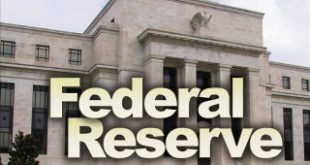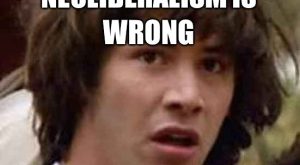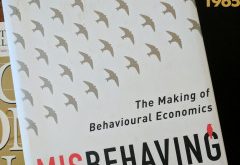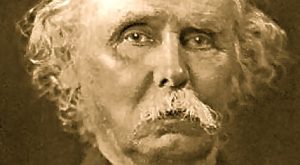Waltz by the river [embedded content] Advertisements
Read More »Keynes vs. Keynesianism
But these more recent writers like their predecessors were still dealing with a system in which the amount of the factors employed was given and the other relevant facts were known more or less for certain. This does not mean that they were dealing with a system in which change was ruled out, or even one in which the disappointment of expectation was ruled out. But at any given time facts and expectations were assumed to be given in a definite and calculable form; and risks,...
Read More »‘Svenska nyheter’ och friskolorna
‘Svenska nyheter’ och friskolorna [embedded content] I Sverige år 2018 låter vi friskolekoncerner med undermålig verksamhet få plocka ut skyhöga vinster – vinster som den svenska staten gladeligen låter dessa koncerner ta av vår skattefinansierade skolpeng. Dessa smarta välfärdsplundrare har överlag en högre lönsamhet än näringslivet i sin helhet, men när man väl plundrat färdigt lämnar man över problemen och eleverna till den förkättrade offentliga...
Read More »La Prudenza della Federal Reserve
La Prudenza della Federal Reserve Alla sua prima uscita ufficiale di fine febbraio al Congresso, il presidente della Federal Reserve, Jay Powell, aveva parlato di un’economia col “vento in poppa”. Ma se qualcuno, a caldo, vi aveva scorto il segnale di una più rapida risalita dei tassi d’interesse, il mercato non sembra crederci poi troppo. Da febbraio, il rendimento dei titoli federali a medio-lungo termine (che rispecchia le aspettative sulla futura...
Read More »Brücke
[embedded content] Advertisements
Read More »I have a dream
I have a dream [embedded content] King’s plea for a more just society is — sad to say — as relevant as ever today when many of the injustices King highlighted still apply. Advertisements
Read More »Involuntary unemployment — a Keynesian ‘impurity’
Samuelson’s reconciliation of the micro-economic ideal type with involuntary unemployment was repudiated, along with Keynesian prescriptions, in favor of a view that there could be no involuntary unemployment , hence that government action was unnecessary. The result was a doctrinaire derivation of the laissez-faire conclusions that had been overturned by the formalist revolution; economics was now cleansed of Keynesian impurities that had been introduced in the interest of...
Read More »Was Julia Kristeva a secret agent?
Was Julia Kristeva a secret agent? The notion surfaced on Tuesday, when the Bulgarian government commission charged with reviewing the files of the country’s notorious Communist-era secret service released a terse document alleging that the Bulgarian-born Ms. Kristeva, who has lived in France since 1966, had served in the early 1970s as an agent known by the code name “Sabina.” The allegation was greeted with shocked disbelief by those immersed in the work...
Read More »Beware of the Coase theorem!
Beware of the Coase theorem! Willingness to walk away from an ‘unfair’ offer is [one] reason why the predictions of the Coase theorem often fail. I had discovered this firsthand many years earlier in Rochester. Our home there had a willow tree in the backyard … The neighbor hated that tree. He asked me to have the tree removed … I knew the Coase theorem … So I went to talk to my neighbor and told him that, while the tree did not bother me, if he felt...
Read More »Mathematical economics — an unmixed evil
Mathematical economics — an unmixed evil Balliol Croft, Cambridge 27. ii. 06 My dear Bowley, I have not been able to lay my hands on any notes as to Mathematico-economics that would be of any use to you: and I have very indistinct memories of what I used to think on the subject. I never read mathematics now: in fact I have forgotten even how to integrate a good many things. But I know I had a growing feeling in the later years of my work at the subject that...
Read More » Lars P. Syll
Lars P. Syll






